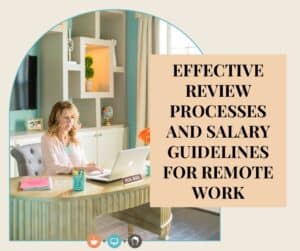Smart Outsourcing Tips for Employers and Job Seekers

Outsourcing has gained traction as a strategic tool for businesses, allowing them to streamline operations by delegating non-essential tasks to third-party providers. This approach not only helps in optimizing internal resources but also offers a broad spectrum of opportunities for job seekers, particularly in the context of remote work. With the rise of digital platforms, outsourcing has become more accessible, enabling companies to tap into global talent pools. For job seekers, this shift means increased chances for flexible work arrangements and diverse project experiences.
Identifying Tasks for Outsourcing
To determine which tasks to outsource, businesses should evaluate the complexity, cost, and strategic importance of each task. Commonly outsourced functions include customer service, IT support, human resources, and accounting. Tasks requiring specialized skills or those that are time-consuming but not critical to core operations are prime candidates for outsourcing. Analyzing whether a task would be more cost-effective if managed externally can also guide the decision.
Benefits for Employers
Outsourcing enables companies to reduce labor costs and overhead by delegating non-core tasks to specialized external providers. This reallocation of resources allows businesses to focus on high-priority projects and strategic initiatives, driving growth and innovation. Additionally, outsourcing offers access to a broader talent pool with specialized expertise, often resulting in enhanced quality and efficiency of the outsourced functions. This strategic approach not only streamlines operations but also provides flexibility, allowing companies to scale up or down based on project needs without the constraints of long-term hiring commitments. By leveraging external expertise, employers can stay competitive and agile in a rapidly changing market.
Advantages for Job Seekers
Outsourcing brings numerous benefits for job seekers, particularly freelancers and contract workers. It broadens the range of available opportunities, allowing individuals to collaborate with various clients across different sectors. This exposure enriches work experience and fosters skill development, as freelancers need to adapt to diverse project requirements. Engaging in multiple projects can significantly enhance a job seeker’s portfolio, making them more attractive to potential employers. Additionally, remote work options that often accompany outsourcing provide flexibility, enabling job seekers to balance personal and professional commitments effectively. This adaptability can lead to a more fulfilling and varied career path, opening doors to new prospects.
Maximizing In-House Talent
Employers should emphasize the development of their existing workforce by promoting continuous learning and professional growth. Providing access to training programs, workshops, and mentorship can lead to a more competent and motivated team. Job seekers should prioritize roles that offer these growth opportunities, ensuring alignment with their long-term career objectives. Encouraging collaboration and knowledge-sharing within the team can also boost innovation and problem-solving capabilities. Regular performance reviews and constructive feedback help employees understand their strengths and areas for improvement, fostering a culture of excellence. By investing in in-house talent, companies can build a resilient workforce equipped to handle future challenges.









